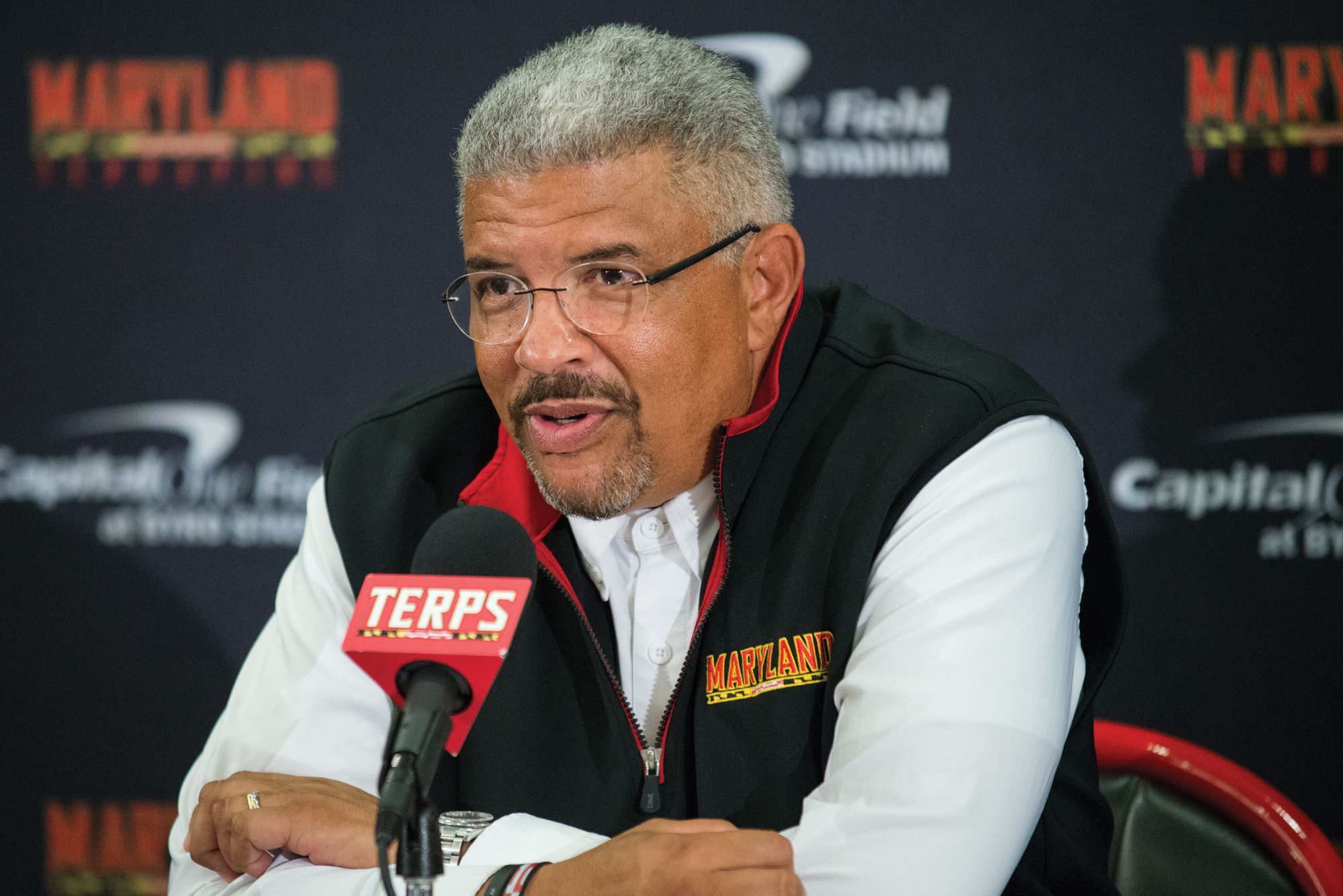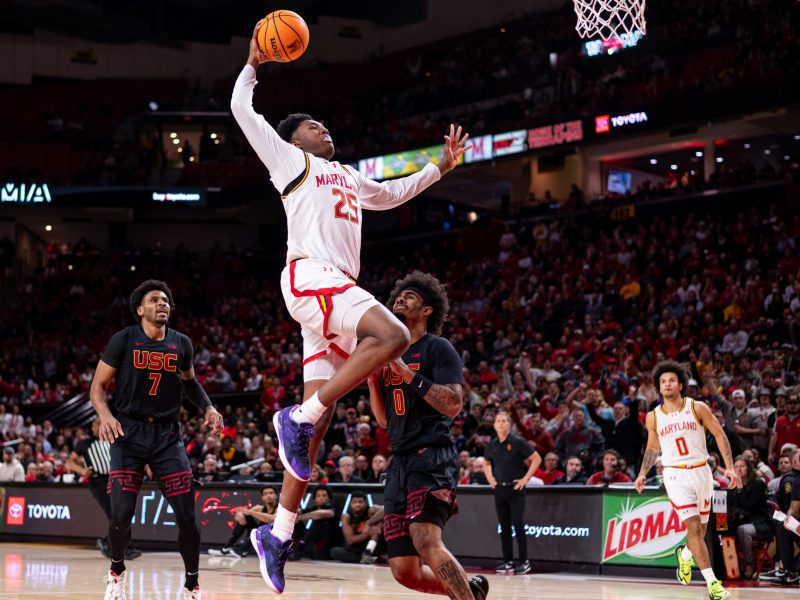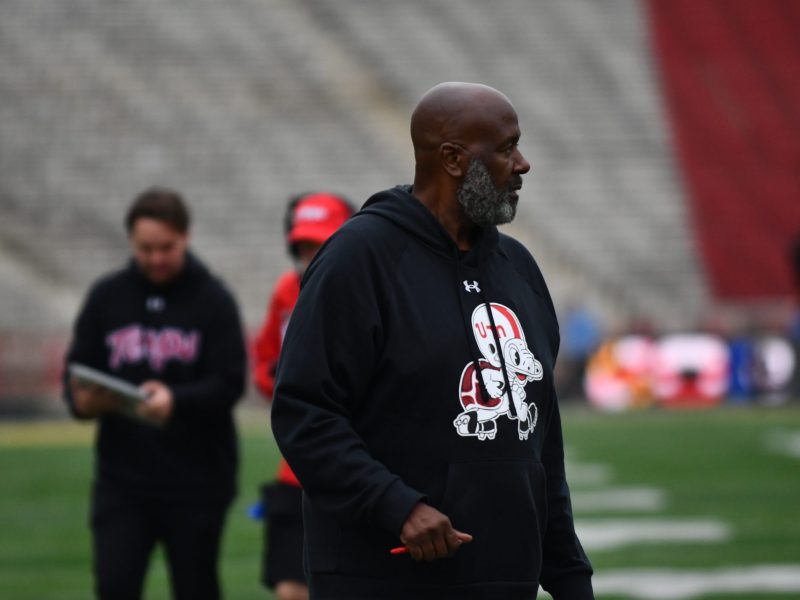The full 363-page report investigation into the culture of Maryland football was released Monday, including materials and evidence gathered by the eight-person task force that were not included in the leaked version of the findings published by the Washington Post last week.
The full version released by the Board of Regents included survey results, a statement from former athletic director Kevin Anderson, text messages from players and parents sent to coach DJ Durkin and the full anonymous email sent to Anderson and Loh in December 2016 that offered an early warning of potential issues within the football team.
Monday’s release offered a glimpse of how the commission came to a conclusion that both stopped short of naming the culture “toxic” but highlighted numerous instances of abusive actions, departmental failures and petty disagreements between Anderson and athletic director Damon Evans.
[Read more: Following the investigation into Maryland football’s culture]
“It is my sincere belief that the instability within the athletic department that began in September 2017 led to the devastating tragedy in May 2018,” Anderson wrote in a statement included in the appendix. “How the University leadership has handled the events of this past year will have a lasting effect on this University for years to come.”
In Anderson’s statement, he describes his seven-year tenure as “challenging, but successful,” mentioning budget deficits that led to seven teams being cut in 2012 and the move from the ACC to the Big Ten. He cited “potential NCAA violations and academic challenges in Football and Men’s Basketball,” which led him to fire football coach Ralph Friedgen.
He went on to say Maryland “had many coaching searches, most if not all had degrees of success.” Anderson replaced Friedgen, who led the Terps to nine wins in 2010, with Randy Edsall, who went 22-34 at Maryland before being fired in 2015.
Anderson lamented the way his time in College Park ended; a drawn-out, sixth-month sabbatical orchestrated by university President Wallace Loh after Anderson meddled with a sexual misconduct case involving two football players.
It was the “last straw” for Loh, who dealt with turf battles between Anderson and Evans that led to inadequate oversight of the football team and helped head strength and conditioning coach Rick Court’s motivational tactics go unchecked, the report found.
“I would be remiss if I did not share with you the extreme disappointment in the manner in which the University’s leadership horribly mishandled my departure,” Anderson wrote. “The way I was treated was undeserved, the process was a disgrace, my reputation has been permanently damaged and my family has suffered terribly. … It is also abundantly clear that the instability and void in leadership that was created by my abrupt departure lead [sic] to a serious lack of institutional control.”
The appendices also display 2017 and 2018 football organizational charts, which clearly shows Durkin directly above Court and contradicts Durkin’s claims that Court did not report to him. Court was Durkin’s first hire, but spent his entire tenure at Maryland unclear on who supervised him.
Anderson received an anonymous email Dec. 9, 2016 that rattled off allegations against Durkin and his staff. But the report showed Anderson, Loh and all of the lower-level staffers who were forwarded the email failed to take adequate action in response to it. The appendices show the complete, three-page email sent from “fortheabused@gmail.com” with a subject line that reads “stop the abuse”.
The email asks Anderson to answer a series of questions.
“Winning and all that it means to him is more important than the mental health and happiness of Those he is supposed to be guiding,” the email reads. “Is this your motto, Anderson? A coach who does not win, gets fired, right? Is your job on the line too; is this why you allow this behavior?”
“Are you even aware of the number of athletes under Durkin that have completely extinguished the joy that the sport of football had once held for them?” the email continues. “Do you have any idea how many of the players didn’t even want to win the Rutgers game because of the abuse they will have to be subject to for the upcoming Bowl game?”
The Terps went on to beat Rutgers and lost in the 2016 Quick Lane Bowl to Boston College.
Finally, the email asks Anderson: “Why are you allowing Coach Durkin and his staff to treat these athletes like Lab Rats? Abusing them to the point of passing out, sustaining injuries, vomiting, by working them to the point of near death and keeping track of it through all the testing to see what their limits are? How would Durkin feel if his son was tortured like this?”
Anderson forwarded this email to Evans, as well as athletics staffers Zack Bolno and Marcus Wilson. “We need to talk about this email,” Anderson wrote. He told the group to keep their eyes open, but nothing came of it. Durkin never saw the email, “a serious omission,” as the report wrote. Loh forwarded the email to Anderson but advised him that he did not have to reply, which was a reflection of the university policy regarding anonymous emails, he said.
While the email provided a negative viewpoint early, and player interviews throughout expressed varying degrees of support for Durkin, the commision believes “his concern for his players’ welfare is genuine.”
That assertion was gathered through 10 hours of interviews, the appendix also relays texts sent from two former players, two current players and the mothers of two current players expressing support to Durkin shortly after he was placed on administrative leave Aug. 11.
Durkin and Evans had meetings with the Board of Regents on Monday, and the board convened again Monday night, the fifth time since receiving the results of the commission’s investigation. So while fingers direct blame around the athletic department and varied opinions appear throughout the report, the fates of Loh, Evans and Durkin remain to be seen.
“I love you coach,” a current player wrote. “You’re not just a coach but like a father to us since day one. You’ve always taught us how to be tough . . . I’ll never forget what you did for me and my family.”



